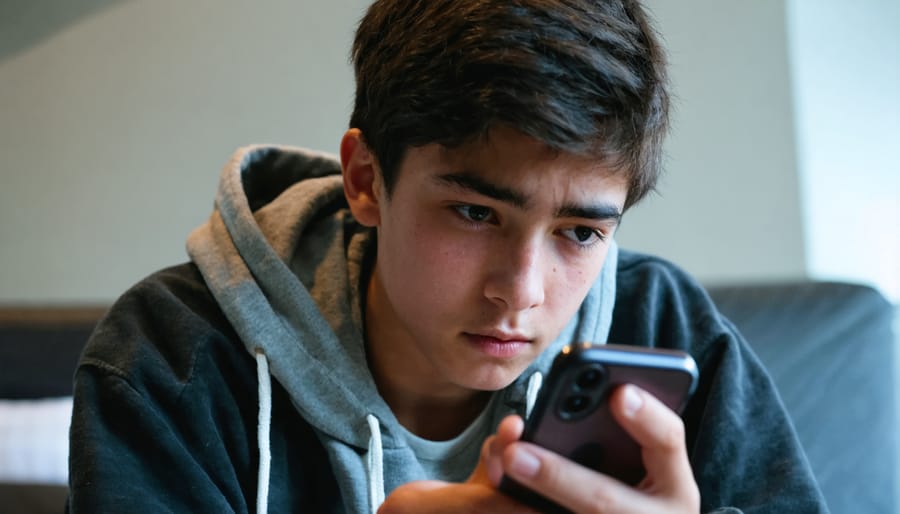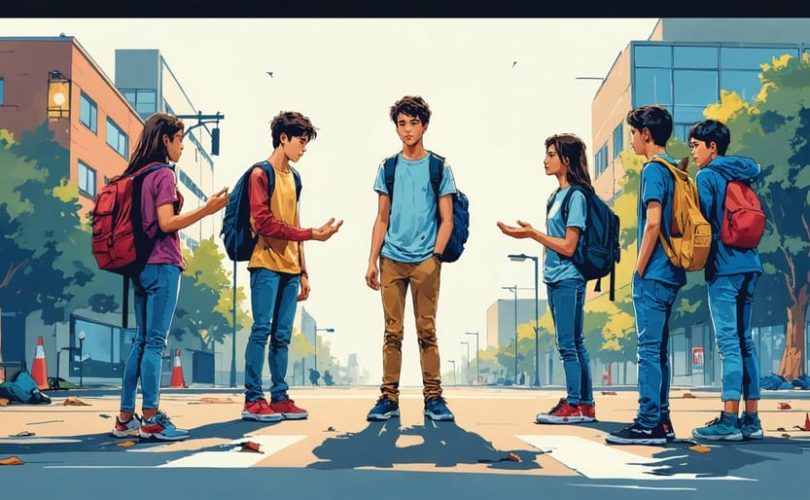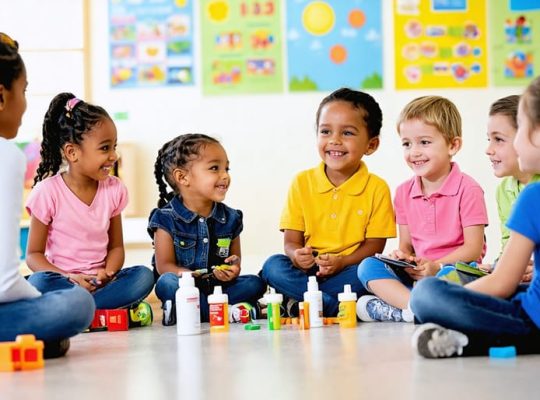While peer pressure itself isn’t illegal, certain actions that result from it can cross serious legal boundaries. As parents, understanding where social influence ends and criminal behavior begins is crucial for protecting our children from potentially life-altering consequences. The effects of drug peer pressure often blur these lines, particularly when teens feel coerced into activities involving substances, theft, or harassment. What makes this especially challenging is that peer pressure can range from subtle social cues to explicit coercion, with varying legal implications. While encouraging a friend to skip class might result in school discipline, pressuring someone to engage in illegal activities like drug use or shoplifting can lead to serious criminal charges – not just for the person committing the act, but potentially for those applying the pressure as well.
Understanding Peer Pressure and Its Legal Implications

When Peer Pressure Becomes Criminal
Peer pressure can cross into criminal territory when it involves coercing or manipulating others into illegal activities. Common examples include pressuring peers to shoplift, vandalize property, or participate in underage drinking or drug use. Even if someone doesn’t directly commit a crime, they could face legal consequences for encouraging or facilitating illegal activities.
Dr. Sarah Martinez, a youth counselor, explains, “What starts as ‘just joking around’ can quickly escalate into criminal behavior. When teens pressure others to break the law, they might not realize they could be charged with conspiracy or aiding and abetting.”
Consider Jamie’s story: “My son was pressured by his friends to be their lookout while they shoplifted. He didn’t steal anything himself, but he still faced legal consequences for being an accomplice.”
Parents should be aware that criminal peer pressure often involves:
– Threatening or blackmailing others
– Forcing participation in illegal activities
– Recording and sharing criminal acts on social media
– Using group intimidation tactics
– Pressuring others to cover up crimes
If your child is experiencing this type of pressure, it’s crucial to involve school authorities, counselors, or law enforcement immediately to prevent escalation and protect their future.
Legal Consequences for Minors and Their Peers
When minors engage in or experience peer pressure, the legal consequences can vary significantly depending on the specific actions involved. For pressured youth who participate in illegal activities, the juvenile justice system typically focuses on rehabilitation rather than punishment. Consequences might include mandatory counseling, community service, or participation in youth intervention programs.
Those who pressure their peers into illegal activities may face more serious charges, especially if coercion or threats are involved. This can include contributing to the delinquency of a minor, which carries potential penalties like probation or placement in juvenile detention facilities.
Parents should understand that they may also bear legal responsibility for their children’s actions through “parental liability” laws. These laws can hold parents financially responsible for damages or harm caused by their children under peer pressure situations.
It’s important to note that the legal system often considers factors such as age, previous behavior, and the level of participation when determining consequences. Many jurisdictions offer diversion programs and other alternatives to help young people learn from their mistakes and avoid permanent records that could impact their futures.
Recognizing the Signs of Peer Pressure
Behavioral Changes to Watch For
Parents and educators should stay alert to sudden changes in a child’s behavior, as these can indicate harmful peer pressure. Watch for unexplained shifts in mood, sudden secretiveness about activities or new friends, and dramatic changes in appearance or style that seem out of character.
Be particularly mindful if your child starts avoiding previously enjoyed activities or longtime friends, shows a sudden drop in grades, or begins breaking household rules they typically followed. Changes in sleep patterns, eating habits, or social media usage can also signal peer pressure influence.
Financial changes, like unexplained spending or constantly needing money, might indicate pressure to buy certain items or participate in concerning activities. Listen for changes in language, especially the use of new slang terms or defensive responses when questioned about their behavior.
Remember that some behavioral changes are normal during adolescence. The key is to notice patterns and multiple changes occurring simultaneously. If you observe these signs, approach your child with compassion and open dialogue rather than judgment or accusations. Early recognition and supportive intervention can prevent peer pressure from escalating into illegal activities.
Social Media and Digital Peer Pressure
In today’s digital age, social media’s influence on substance use has created new challenges for young people. Online platforms can amplify peer pressure through constant connectivity, making it harder for teens to escape negative influences. Social media posts glorifying alcohol and drug use, coupled with the fear of missing out (FOMO), can create subtle but powerful pressure to experiment with substances.
Digital peer pressure often feels more intense because it’s persistent and can reach teens in their own homes. Comments, likes, and shares celebrating risky behaviors can normalize substance use, while private messaging apps may facilitate direct pressure to participate in illegal activities.
Parents and educators should maintain open conversations about online influences and help young people develop strong digital boundaries. Setting healthy limits on social media use, discussing online content critically, and building offline support networks can help teens resist digital peer pressure. Remember, while peer pressure itself isn’t illegal, using social media to coerce others into illegal activities can have serious legal consequences.

Prevention Strategies for Parents
Building Resilience and Self-Confidence
Building resilience in your child is one of the most effective ways to help them resist negative peer pressure. Start by fostering open communication at home, creating a safe space where your child feels comfortable sharing their concerns without fear of judgment. This foundation is crucial to protect your child from substance abuse and other harmful behaviors.
Encourage your child to develop strong decision-making skills by involving them in age-appropriate choices and discussing potential consequences. Role-playing different scenarios can help them practice saying “no” confidently when faced with pressure from peers. As one school counselor notes, “Children who rehearse their responses are better prepared when challenging situations arise.”
Help your child build a positive self-image by celebrating their unique qualities and achievements. Strong self-esteem acts as a natural buffer against peer pressure. Encourage involvement in activities they enjoy and connections with like-minded peers who share their values.
Teaching assertiveness skills is equally important. Help your child understand that it’s okay to disagree with others and stand up for their beliefs. Simple phrases like “I’m not comfortable with that” or “That’s not my thing” can be powerful tools when delivered with confidence.
Remember that building resilience is a gradual process that requires patience, consistency, and support from caring adults.
Creating Open Communication Channels
Open communication is your strongest defense against negative peer pressure. Start by creating regular, judgment-free conversations with your child about their daily experiences, friends, and challenges. Make it clear that they can come to you with any concerns without fear of immediate punishment or criticism.
Set aside dedicated time each day, even if it’s just 15 minutes during dinner or before bedtime, to check in with your child. Ask open-ended questions about their day, their friends, and any situations that made them uncomfortable. Listen more than you speak, and validate their feelings even if you disagree with their choices.
When discussing peer pressure specifically, share your own experiences from childhood or adolescence. This helps normalize their struggles and shows them that everyone faces similar challenges. Create a code word or signal they can use when they need help getting out of an uncomfortable situation – this gives them an escape route without losing face with peers.
Remember to stay calm when your child shares concerning information. If they tell you about being pressured to try drugs or engage in illegal activities, focus first on their safety and willingness to confide in you. Work together to develop strategies for handling similar situations in the future, and reinforce that they can always reach out to you, no matter the circumstance.

When to Seek Professional Help
While peer pressure itself may not be illegal, there are clear warning signs that indicate when professional help is needed. If your child shows sudden behavioral changes, becomes secretive, or starts engaging in risky activities, it’s time to reach out to experts. Watch for signs of anxiety, depression, or withdrawal from family and usual activities.
Seek immediate professional assistance if your child mentions being pressured into illegal activities, such as drug use, shoplifting, or other criminal behavior. Additionally, if they express feelings of being threatened or blackmailed, this requires prompt intervention from both mental health professionals and potentially law enforcement.
Dr. Sarah Thompson, a child psychologist, emphasizes: “When peer pressure leads to self-destructive behaviors or affects a child’s mental health, professional intervention can provide crucial support and coping strategies.”
Consider consulting a mental health professional if:
– Your child expresses feelings of hopelessness or worthlessness
– There are significant changes in eating or sleeping patterns
– Academic performance suddenly declines
– They show signs of substance use
– You notice unexplained injuries or missing belongings
– They become increasingly isolated from family
Remember, early intervention often leads to better outcomes. School counselors, child psychologists, and family therapists are valuable resources who can help navigate these challenging situations while ensuring your child’s safety and well-being.
While peer pressure itself isn’t illegal, its consequences can have serious legal implications, especially when it leads to substance use or harmful behaviors. As parents, you play a crucial role in protecting your children from negative peer influence while supporting their healthy social development. Remember that open communication, active listening, and creating a safe space for your child to share their concerns are your most powerful tools.
Take heart in knowing that you’re not alone in this journey. Many parents face similar challenges, and there are numerous resources and support systems available. By staying involved in your child’s life, teaching them resilience skills, and helping them build a strong sense of self-worth, you can empower them to make positive choices despite peer pressure.
If you’re concerned about your child’s exposure to peer pressure, don’t hesitate to reach out to school counselors, mental health professionals, or support groups. With the right guidance and support, your child can develop the confidence and judgment needed to navigate peer relationships safely and legally while maintaining their own values and boundaries.







